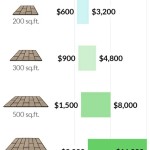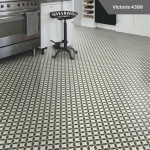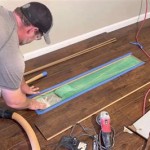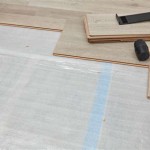Engineered Wood Flooring on Concrete: A Comprehensive Guide
Engineered wood flooring presents a popular and aesthetically pleasing alternative to solid hardwood, offering a balance of visual appeal and practicality. Its construction consists of a thin layer of real hardwood veneer bonded to a core typically made of plywood, high-density fiberboard (HDF), or softwood. This multi-layered structure enhances its stability and resistance to moisture fluctuations compared to solid wood. One common application involves installing engineered wood flooring over concrete subfloors. This article explores the considerations, processes, and best practices associated with this type of installation.
Concrete subfloors, prevalent in both residential and commercial construction, require careful preparation before any flooring material can be installed. The primary concern is moisture content, as concrete is porous and can absorb moisture from the ground or surrounding environment. Excess moisture can lead to warping, buckling, and mold growth in the engineered wood flooring. Therefore, accurate assessment and mitigation of moisture-related issues are crucial for a successful and long-lasting installation.
Key Considerations Before Installation
Before commencing the installation of engineered wood flooring on concrete, a rigorous assessment of the subfloor is paramount. This assessment encompasses several key factors, including moisture levels, flatness, cleanliness, and structural integrity. Failure to address these aspects can result in costly problems down the line.
Moisture Testing: Determining the moisture content of the concrete subfloor is the initial and most critical step. Several methods are available, including the calcium chloride test, which measures the rate of moisture vapor emission (MVE), and electronic moisture meters, which provide a percentage reading of moisture content. The manufacturer of the engineered wood flooring will specify the acceptable moisture levels for installation. If the moisture levels exceed these limits, remediation measures are necessary. These measures may include applying a moisture barrier or allowing the concrete to dry further through natural ventilation or dehumidification. It is crucial to document all moisture testing results and the remediation steps taken.
Flatness Assessment: Concrete subfloors are rarely perfectly level. Imperfections such as dips, humps, and cracks can affect the stability and appearance of the installed flooring. Using a long straightedge and a level, the flatness of the subfloor should be meticulously evaluated. Localized variations exceeding 3/16 inch over a 10-foot span generally require correction. Self-leveling compounds can be employed to fill in low spots and level the surface. Grinding may be necessary to remove high spots. The goal is to create a consistently flat surface that provides adequate support for the engineered wood flooring.
Cleanliness: The concrete subfloor must be thoroughly cleaned to remove any dirt, debris, paint, or adhesive residue. A clean surface ensures proper adhesion of any adhesives or underlayments used during installation. Sweeping, vacuuming, and even scrubbing with a suitable cleaner may be necessary. Any loose or flaking material should be removed to create a solid and stable base.
Structural Integrity: The concrete subfloor should be inspected for any cracks or structural damage. Minor hairline cracks may be filled with a crack filler designed for concrete. However, larger or structural cracks may indicate underlying problems that require professional attention. Ignoring structural issues can lead to shifting and movement in the subfloor, which can damage the engineered wood flooring and compromise its longevity.
Installation Methods for Engineered Wood Flooring on Concrete
Several methods can be used to install engineered wood flooring on concrete, each with its own advantages and disadvantages. The choice of method depends on factors such as the type of flooring, the condition of the subfloor, and the desired level of moisture protection.
Direct Glue-Down: This method involves directly adhering the engineered wood planks or strips to the concrete subfloor using a suitable adhesive. This method provides a strong and stable bond, reducing the likelihood of movement or squeaking. However, it requires a perfectly flat and clean subfloor to ensure proper adhesion. The adhesive must be specifically designed for use with both engineered wood and concrete. The manufacturer's instructions regarding adhesive application rate and open time must be strictly followed. This method is often preferred for its stability and direct contact feel underfoot.
Floating Installation: In a floating installation, the engineered wood flooring is not directly attached to the concrete subfloor. Instead, the planks or strips are connected to each other using a tongue-and-groove system. An underlayment is typically installed between the concrete and the flooring to provide cushioning, sound insulation, and a degree of moisture protection. This method is generally easier and faster to install than the glue-down method. It also allows for some degree of movement in the subfloor, making it a suitable option for concrete subfloors that may have minor imperfections. However, it may not feel as solid underfoot as a glue-down installation.
Nailing or Stapling (Less Common): While less common, engineered wood flooring can sometimes be nailed or stapled to a wooden subfloor that has been installed over the concrete. This approach often involves installing a sleeper system - wooden strips attached to the concrete - to provide a nailing surface. This method is generally more labor-intensive and adds height to the finished floor. It is also susceptible to moisture issues if the wooden subfloor is not properly protected. This approach is usually reserved for specific situations where a traditional nail-down installation is desired.
Moisture Mitigation Strategies
Moisture is arguably the biggest threat to engineered wood flooring installed over concrete. Even if initial moisture tests show acceptable levels, moisture can migrate through the concrete over time, leading to problems. Therefore, implementing effective moisture mitigation strategies is essential for ensuring the longevity of the flooring.
Moisture Barriers: A moisture barrier is a physical layer that prevents moisture from migrating from the concrete into the engineered wood flooring. This barrier can be in the form of a liquid-applied epoxy coating, a sheet membrane, or a polyethylene film. These barriers are typically applied directly to the concrete subfloor before the flooring is installed. The choice of moisture barrier depends on the severity of the moisture problem and the specific requirements of the flooring manufacturer. It is crucial to select a moisture barrier that is compatible with both the concrete and the adhesive or underlayment being used.
Underlayments with Moisture Protection: Certain underlayments are designed with integrated moisture protection features. These underlayments often have a closed-cell foam structure that resists moisture absorption. They may also have an attached moisture barrier film. These underlayments can provide an additional layer of protection against moisture and can be particularly useful in floating installations where a direct barrier is not applied to the concrete.
Acclimation: Acclimation refers to the process of allowing the engineered wood flooring to adjust to the temperature and humidity conditions of the installation environment before it is installed. This process helps to minimize expansion and contraction after installation, reducing the risk of warping or buckling. The manufacturer's instructions typically specify the recommended acclimation period, which can range from a few days to a week or more. The flooring should be stored in the room where it will be installed, away from direct sunlight and sources of heat or moisture.
Proper Ventilation: Ensuring adequate ventilation in the area beneath the concrete subfloor can help to reduce moisture buildup. This is particularly important in basements or crawl spaces where moisture levels may be higher. Installing vapor barriers and improving drainage around the foundation can also help to minimize moisture intrusion.
Proper installation practices are crucial for achieving a durable and aesthetically pleasing result when installing engineered wood flooring over concrete. Careful attention to detail, adherence to manufacturer's instructions, and the implementation of effective moisture mitigation strategies will contribute to a successful and long-lasting installation.

Installing Engineered Hardwood On Concrete Twenty Oak

Installing Wood Flooring Over Concrete Diy

Installing Engineered Hardwood On Concrete Twenty Oak

Installing Engineered Flooring On A Concrete Slab Fine Homebuilding

Installing Hardwood Floors On Concrete Subfloors

How To Install Engineered Flooring On Concrete Adm

How To Install Engineered Wood Flooring On Concrete

Hardwood Over Concrete Auten Wideplank Flooring

Installing Engineered Hardwood On Concrete Villagio Guide

How To Install Engineered Wood Flooring On Concrete
Related Posts








